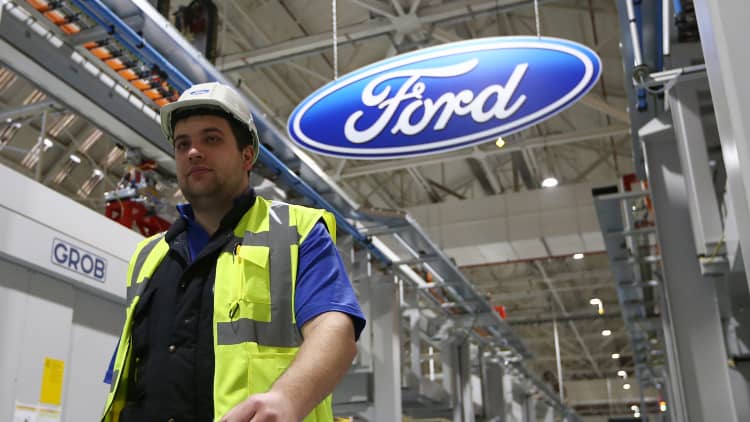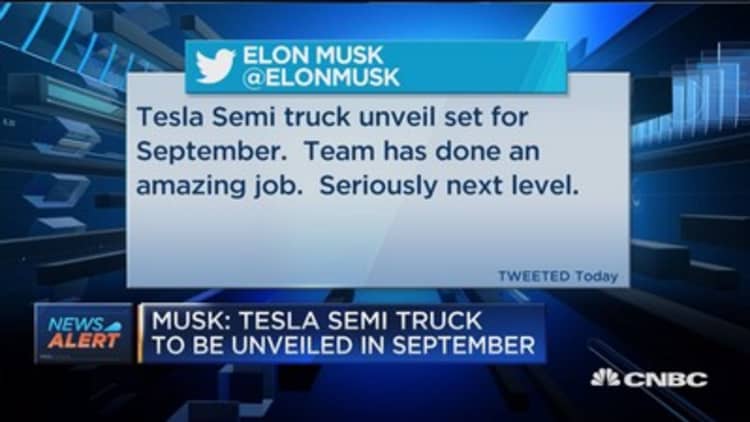The full impact of self-driving cars on society is several decades away — but when it hits, the job losses will be substantial for American truck drivers, according to a new report from Goldman Sachs.
When autonomous vehicle saturation peaks, U.S. drivers could see job losses at a rate of 25,000 a month, or 300,000 a year, according to a report from Goldman Sachs Economics Research.
Truck drivers, more so than bus or taxi drivers, will see the bulk of that job loss, according to the report. That makes sense, given today's employment: In 2014, there were 4 million driver jobs in the U.S., 3.1 million of which were truck drivers, Goldman said. That represents 2 percent of total employment.

The report estimates that semi- and fully autonomous car sales will have about 20 percent share of car sales around 2025 to 2030.
The report comes as fierce competition to make self-driving cars is shaking up companies from the inside out.
Uber formally launched Uber Freight last week with a self-driving executive at the helm, expanding its reach in the trucking industry, even as it fights in court with Alphabet over whether some of its technology is stolen. And at Ford, the CEO will be replaced by a self-driving car expert, in an effort to "transform Ford for the future."
Near term, the analysts predict that occupations like secretaries, cashiers, bank tellers, waiters and real estate agents could also be at risk of automation.
To be sure, the report estimates that the full effects of self-driving cars will be delayed by regulation and slow adoption. The report as a whole strikes an optimistic tone on the future of the labor market, noting that many different employment and productivity measures in the United States do not show massive disruption from labor-replacing technologies.
Industries like department stores, telecom, printing,
"Demand for
Watch: Tesla to unveil semi truck in September



